Are you considering extending your service contract but unsure about how to approach it? Writing a clear and concise letter can make all the difference in ensuring a smooth continuation of your agreement. In this article, we will guide you through the essential components of a service contract extension letter, providing you with helpful tips and templates to make the process effortless. So, let's dive in and explore how to craft the perfect letter for your service contract extension!

Clear subject line
Service Contract Extension Request - [Your Company Name]
Contract details and parties involved
A service contract extension allows for the continuation of business relationships between parties, typically defined as the service provider, such as a maintenance or consulting firm, and the client, which could be a corporation or individual. Important details include the original contract number, stating the specific agreement originally established, and the original effective date, often marking the beginning of services rendered. The extension period should be clearly outlined, specifying the new termination date that both parties agree upon. Conditions for the extension, including any alterations in service scope, payment terms, and obligations, play a critical role in maintaining clarity and expectations. Furthermore, signatures from authorized representatives of both parties are essential to validate the agreement, ensuring that all legal requirements are satisfied and both sides are committed to the new terms.
Extension period and terms
Service contract extensions allow for continued support and seamless service delivery. Extension periods typically range from six months to two years, depending on the agreement's original terms and the nature of the service. Key terms often include conditions for performance expectations, pricing adjustments, and renewal clauses. Parties may negotiate service level agreements (SLAs) during the extension, detailing response times and quality assurance metrics. Effective communication becomes essential during this period to ensure alignment on services provided and any potential modifications. Businesses must review their existing contracts, paying close attention to specificities such as termination rights and notice requirements, typically stipulated as 30, 60, or 90-day provisions, to avoid any unintended interruptions in service.
Justification or reasoning for extension
Service contract extensions often arise from the successful fulfillment of contractual obligations, such as consistent performance, customer satisfaction, or evolving project requirements. A clear justification for extending a service contract may include the ongoing need for specialized services that align with business goals, such as IT support or facility maintenance, ensuring uninterrupted operations. Additionally, the recognition of the vendor's expertise, responsiveness, and positive working relationship could play a crucial role in the decision, emphasizing the importance of continuity in service delivery. Financial considerations, like budget allocations for the upcoming fiscal year or favorable pricing terms from an existing vendor, also support contract extensions. Documenting these reasons provides a solid framework for discussions with stakeholders and demonstrates the added value of an extended partnership.
Contact information for further discussion
Service contract extension discussions may involve contacting relevant teams to finalize agreements. Key stakeholders such as managers and legal advisors can provide insight on the extension terms. Contact information typically includes email addresses, phone numbers, or office locations for prompt communication. It's beneficial to prepare discussion points to streamline the conversation, ensuring clarity regarding service levels, duration, and any financial adjustments. Maintaining a detailed record of these discussions is crucial for contract enforcement and future reference.

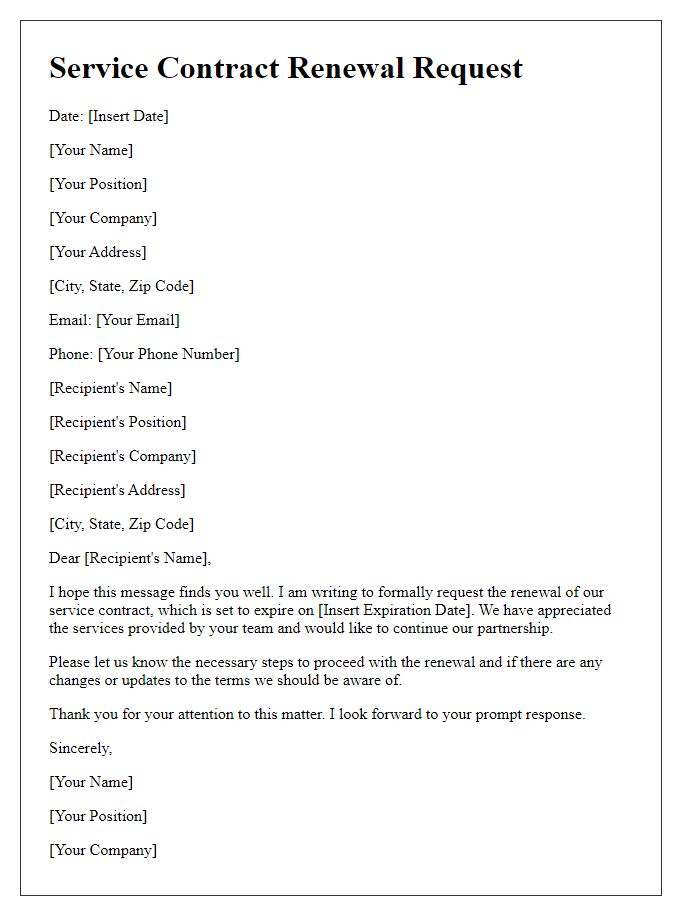
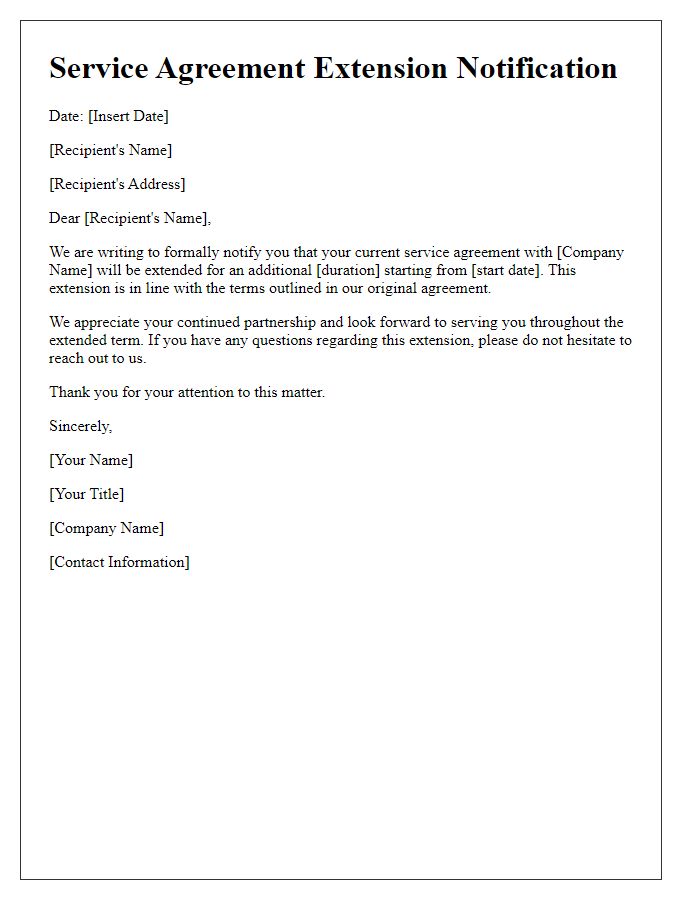
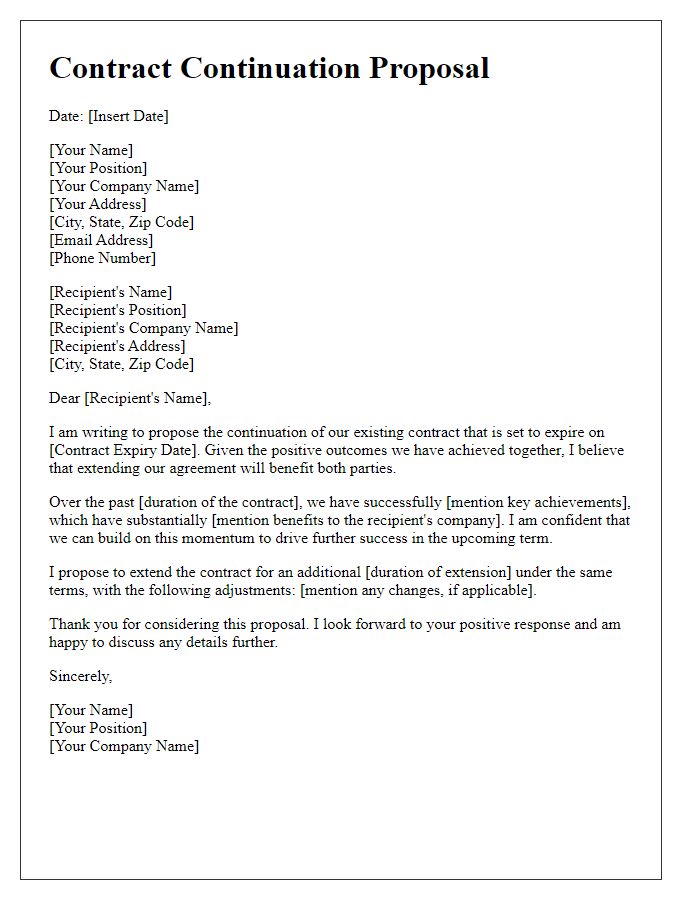
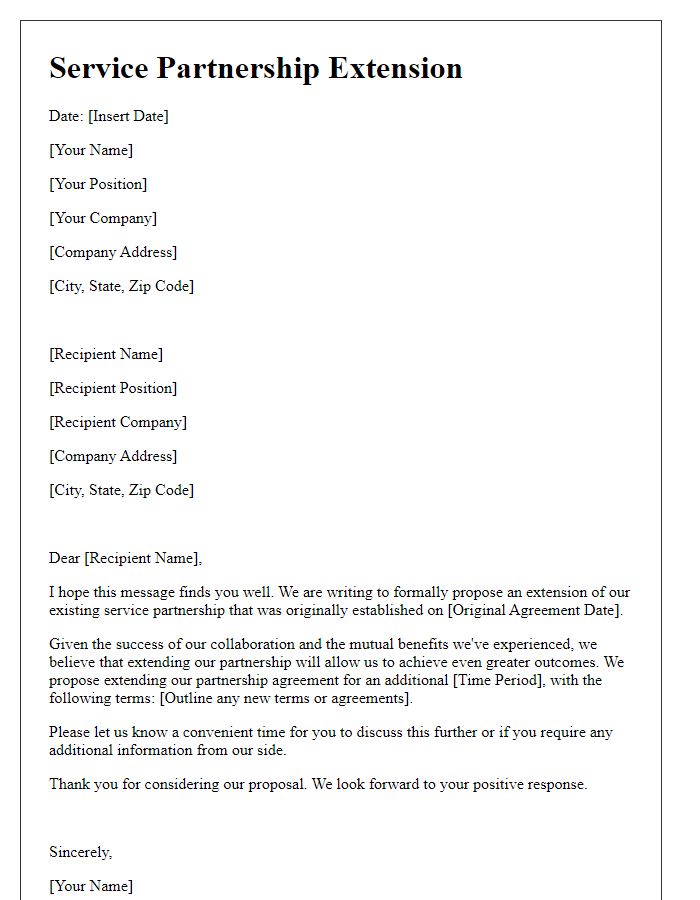
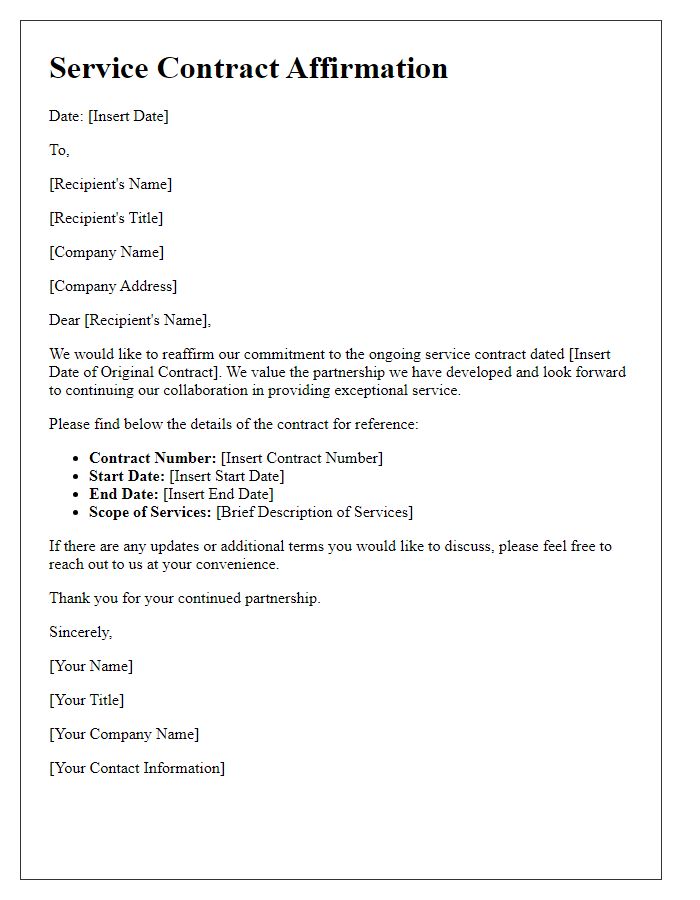
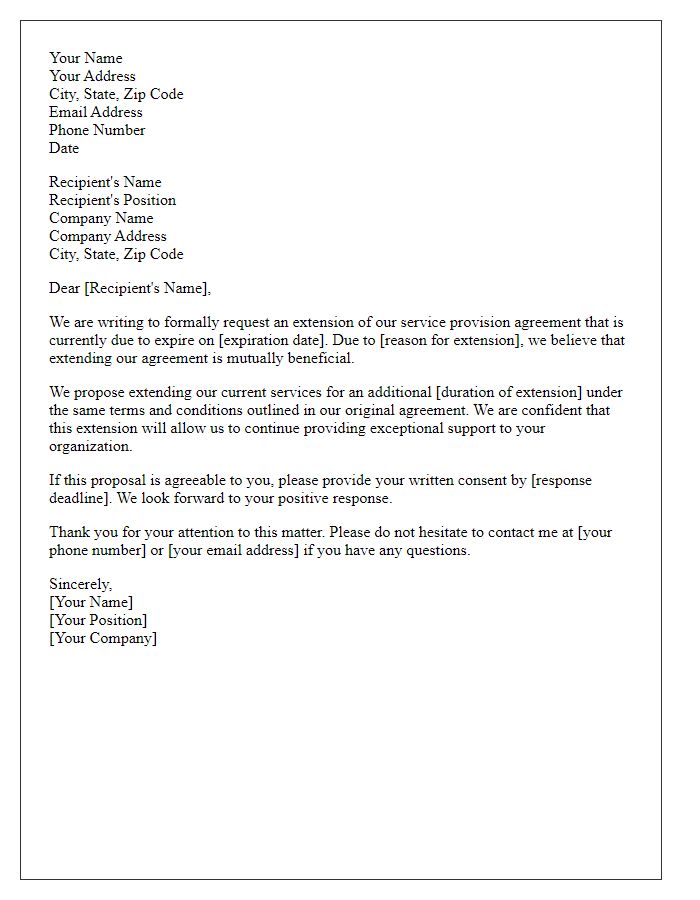
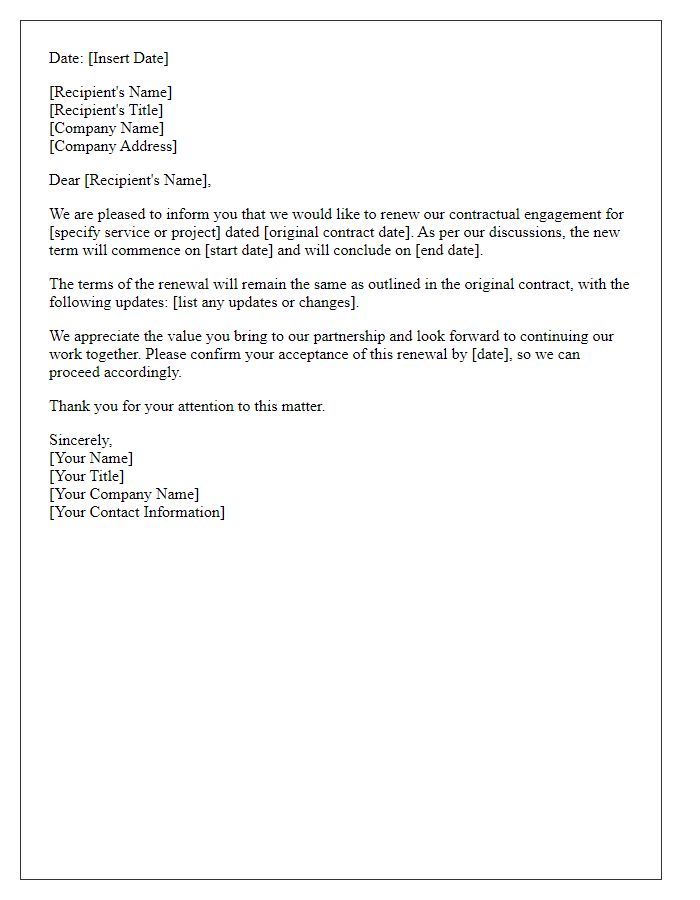
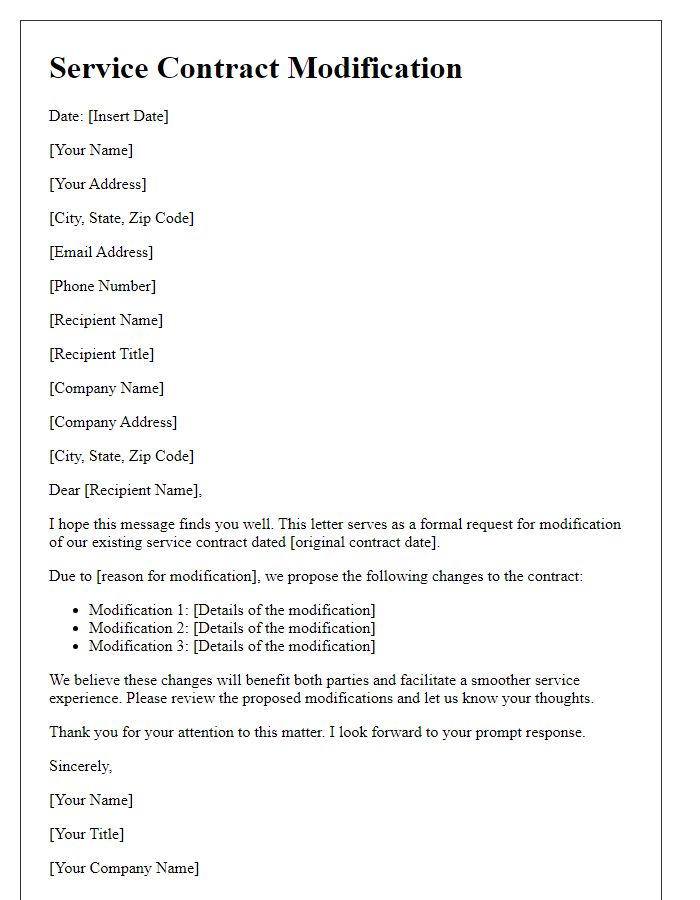
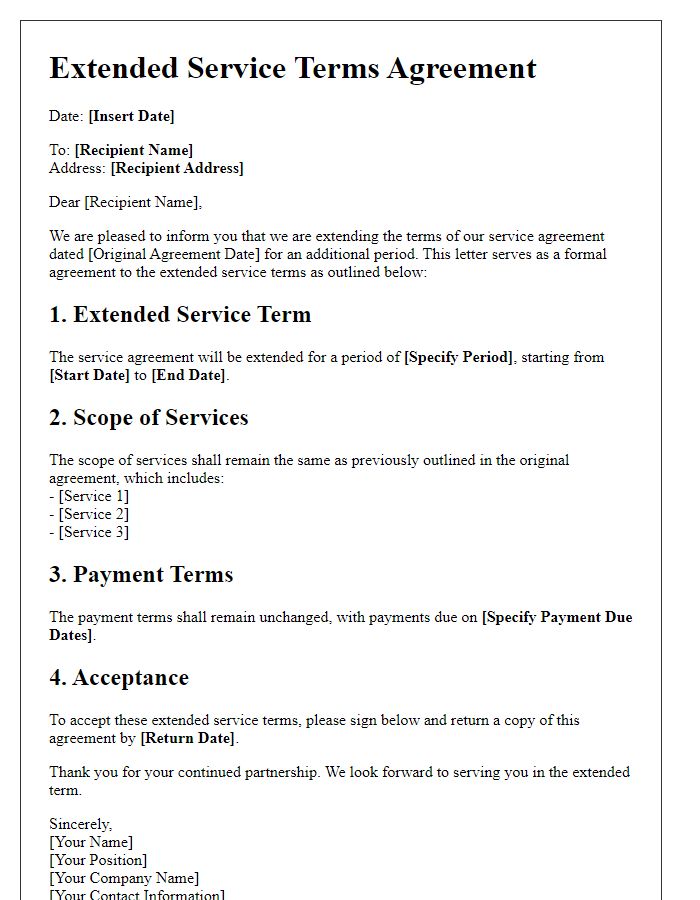
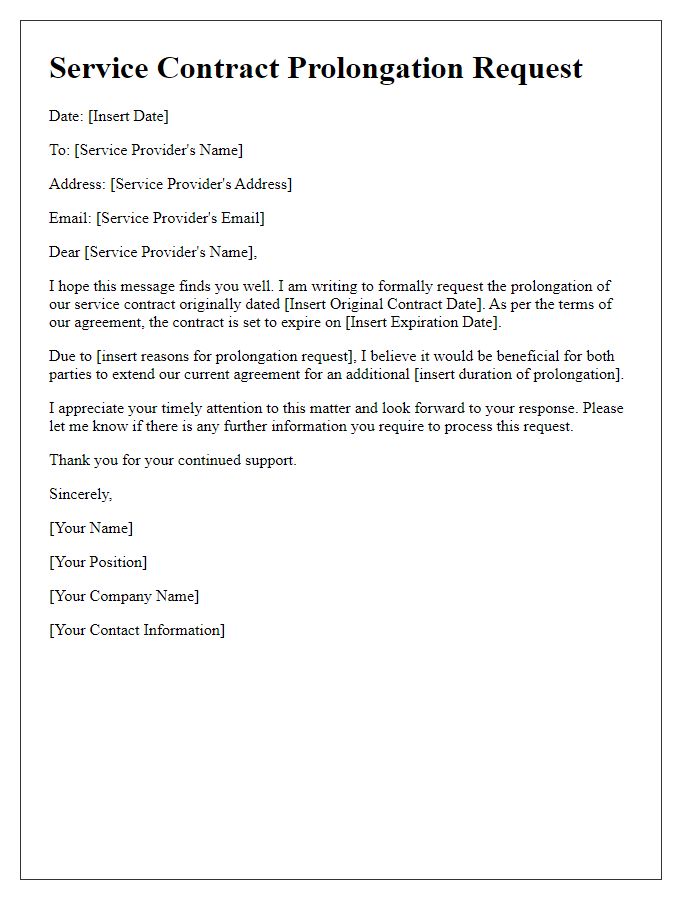

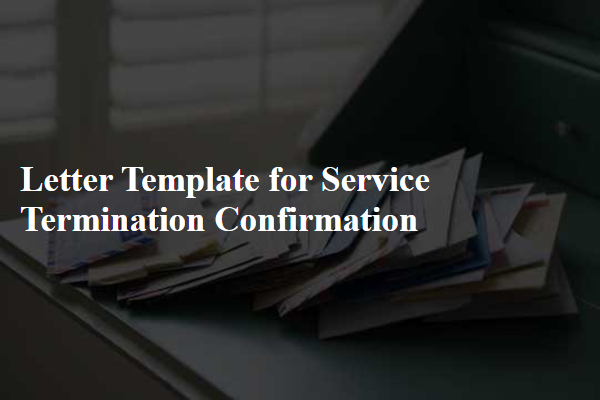
Comments